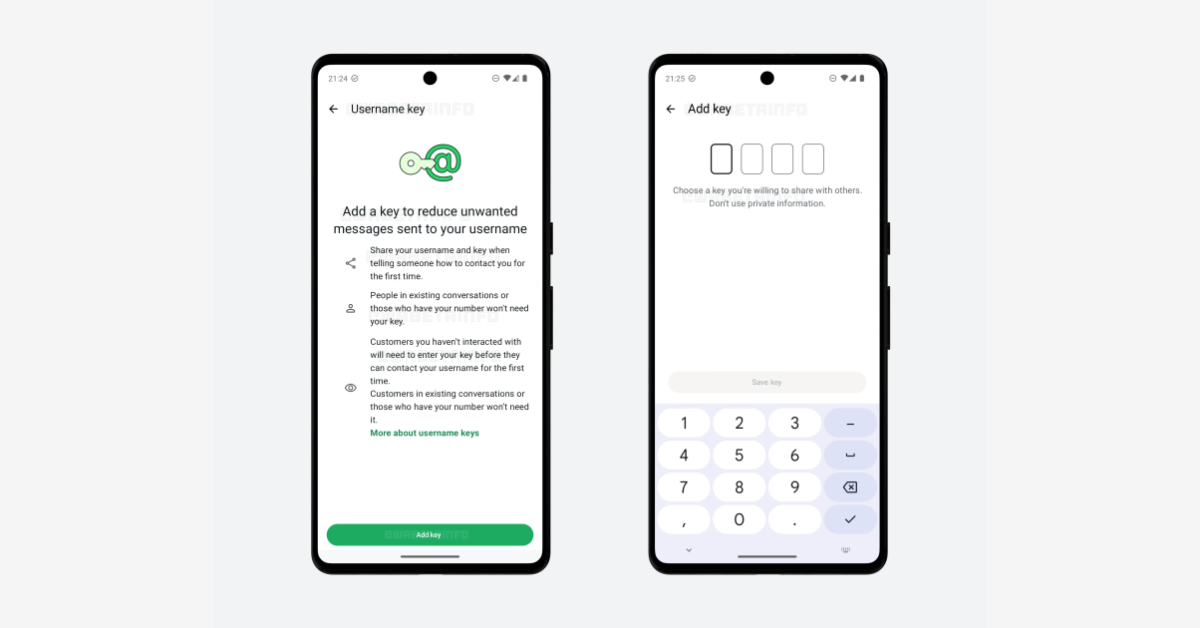WhatsApp is developing Username Keys for Android to help users avoid unwanted messages, as well as introducing real-time voice chats with Meta AI to iOS via beta. The function, which allows users to share their numbers, is presently unavailable in the latest beta software.
WhatsApp is reportedly working on a feature that allows users to configure a username PIN to reduce unwanted messages, following the release of the latest beta for Android 2.25.22.9 on the Google Play Store.
According to WABetaInfo, WhatsApp will give users control over who may contact them by demanding a PIN before sending a message to a username. To make users aware of this functionality, a big banner will appear at the top of the Chats page for those who have entered a username but not activated a PIN.
As per the shared screenshot, WhatsApp plans to roll out a new feature called “username key” in a future update, renaming the “username PIN” to better represent its purpose of enabling users to contact them using their username. This new feature is designed to explain the concept to consumers and enhance their overall experience.
Also Read: Truecaller will stop offering the call recording feature for iPhones starting September 30
WhatsApp is adding an optional barrier to avoid uninvited chats. Users can choose a key that must be input by first-time contacts seeking to communicate with them via their username. This makes it far more difficult for random persons to send unwelcome messages, even if they can guess or get the username. This feature is intended to address concerns about uninvited interactions and protect users’ privacy.
Also Read: Asus announced Independence Day Sale offers on ROG, TUF, Vivobook, and Zenbook lineup
Users can only begin chats with their defined username and key. This is helpful in public spaces where people wish to be easily accessible. Enabling the key is perfect for limiting communications to trusted users, such as friends or coworkers who have provided their username and key. This minimises the number of unwanted messages while increasing the intentionality and control of communication. This is similar to placing a lock on a door and never giving anyone the key.



